Warning: Trying to access array offset on value of type bool in /www/wwwroot/www.medtourcn.com/wp-content/themes/medical-directory/framework/theme/medicaldirectory-image.php on line 78
Warning: Trying to access array offset on value of type bool in /www/wwwroot/www.medtourcn.com/wp-content/themes/medical-directory/framework/theme/medicaldirectory-image.php on line 79
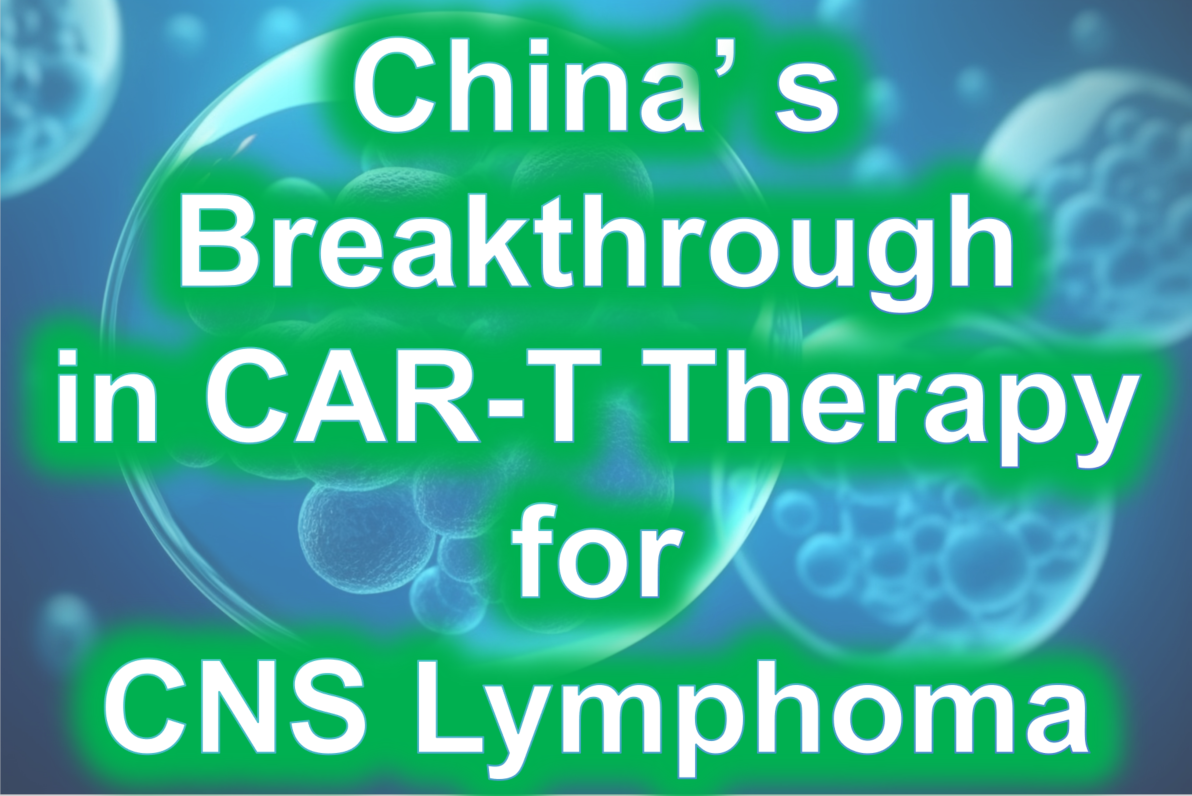
China’s Breakthrough in CAR-T Therapy for CNS Lymphoma
### China’s Breakthrough in CAR-T Therapy for CNS Lymphoma
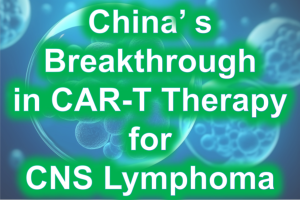
Lymphoma
In a pioneering effort to improve outcomes for patients with refractory/relapsed central nervous system lymphoma (CNSL), a multi-center retrospective study led by Professor Jianqing Mi from Ruijin Hospital, Shanghai Jiaotong University School of Medicine, has showcased the impressive real-world effectiveness of Relmacabtagene Autoleucel (Relma-cel). This study, encompassing data from 12 centers across China, represents the largest sample size for a real-world study on commercial CAR-T therapy in treating CNSL, and its results have been recently published in the *Journal for ImmunoTherapy of Cancer*.
### Study Overview and Patient Demographics
The study included 22 patients aged 18 and above, all diagnosed with CD19+ refractory or relapsed CNSL. These patients had previously undergone various systemic treatments, including CD20 monoclonal antibody immunochemotherapy and high-dose methotrexate-based therapies. Of the participants, 12 had primary CNSL and 10 had secondary CNSL. The median age was 56, with 45.5% being over 60 years old. The study focused on a high-risk group, with many having a Karnofsky Performance Status (KPS) score of ≤60, multiple prior treatment lines, and/or high-risk genetic profiles such as double-hit lymphoma (DHL).
### Treatment and Response
Patients received Relma-cel with a median interval of 32 days between apheresis and infusion. Thirteen patients received a single CAR-T cell infusion, while nine underwent autologous stem cell transplantation (ASCT) in combination with CAR-T infusion. Notably, 20 patients received bridging therapy to control disease before CAR-T infusion. The overall response rate (ORR) was 90.9%, with a complete response (CR) rate of 68.2%. Impressively, all patients achieved CNS response, with 72.7% achieving CNS CR. The median time to response was one month.
### Follow-Up and Survival Outcomes
The median follow-up period was 316 days. Among the 16 patients who achieved CNS response, 81.3% remained alive and in remission, with half maintaining CNS CR for over a year. The study reported a one-year progression-free survival (PFS) rate of 64.4%, duration of response (DOR) rate of 71.5%, and overall survival (OS) rate of 79.2%. Key predictors of better outcomes included achieving CR before infusion and having non-progressive disease at the time of infusion.
### Safety and Tolerability
The safety profile of Relma-cel was acceptable. Cytokine release syndrome (CRS) occurred in 72.7% of patients, primarily grade 1 or 2, with only one case of grade 3. Immune effector cell-associated neurotoxicity syndrome (ICANS) was reported in 36.4% of patients, mostly grade 1 or 2. There were no CAR-T therapy-related deaths, although five patients (22.7%) died, with three deaths due to disease progression and two from non-relapse causes (COVID-19).
### CAR-T Cell Dynamics and Combined Therapy
The study also explored the pharmacokinetics of CAR-T cells. Relma-cel showed significant expansion in the peripheral blood within the first 28 days post-infusion, with CAR-T cells detected in the cerebrospinal fluid of all evaluable patients. Interestingly, patients receiving additional immunotherapies like BTK inhibitors or PD-1 inhibitors exhibited CAR-T cell re-expansion, suggesting potential synergistic effects.
### Conclusion and Future Directions
This landmark study underscores the clinical efficacy and manageable safety profile of Relma-cel for treating CNSL in a real-world setting. It highlights the potential benefits of combining CAR-T therapy with other immunotherapies, offering a promising strategy for enhancing CAR-T cell persistence and effectiveness. These findings pave the way for future research, suggesting the need for larger, randomized studies to further validate these results and explore the role of CAR-T therapy as a consolidation treatment for high-risk CNSL patients. As China continues to advance in medical research and technology, studies like this are crucial in providing valuable insights and improving global healthcare standards.
🎉🎉To assess whether the condition is suitable for CAR-T or clinic therapy, you can submit Advanced Medicine in China for preliminary evaluation!
WhatsApp: +8613717959070
Email: doctor.huang@globecancer.com
#CARTTherapy #CNSLymphoma #CancerResearch #MedicalBreakthrough #ChinaHealthcare #Immunotherapy #RelmaCel #PatientOutcomes #InnovativeTreatment #ClinicalStudy
Warning: Trying to access array offset on value of type bool in /www/wwwroot/www.medtourcn.com/wp-content/themes/medical-directory/framework/theme/medicaldirectory-image.php on line 78
Warning: Trying to access array offset on value of type bool in /www/wwwroot/www.medtourcn.com/wp-content/themes/medical-directory/framework/theme/medicaldirectory-image.php on line 79
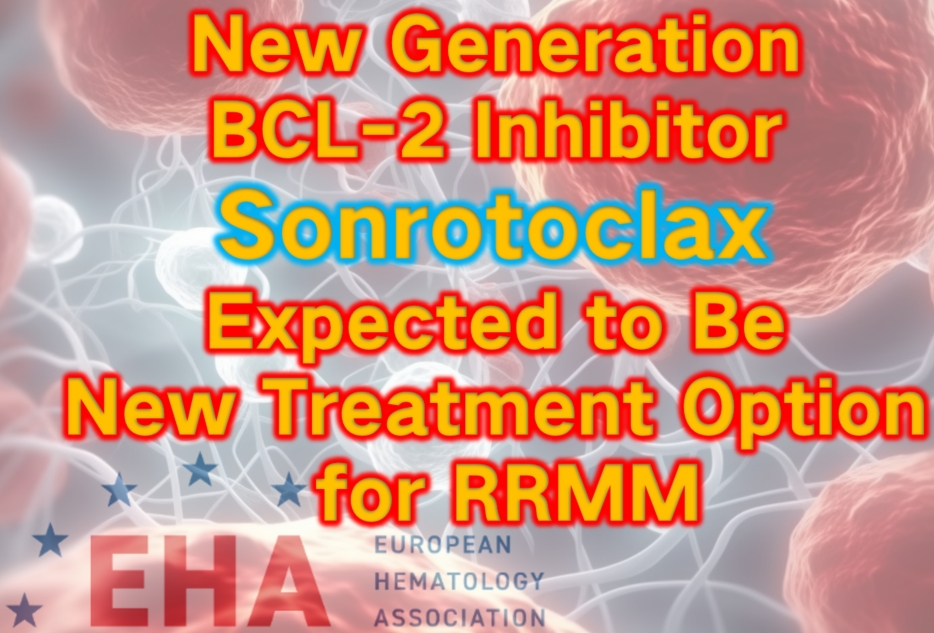
2024 EHA | New Generation BCL-2 Inhibitor Sonrotoclax Expected to Be a New Treatment Option for RRMM
**2024 EHA | New Generation BCL-2 Inhibitor Sonrotoclax Expected to Be a New Treatment Option for RRMM**

RRMM
The 29th Annual Meeting of the European Hematology Association (EHA) was held from June 13-16, 2024, in Madrid, Spain. During this event, the results of the study on the new-generation BCL-2 inhibitor Sonrotoclax (BGB-11417) combined with dexamethasone for the treatment of relapsed/refractory multiple myeloma (RRMM) patients with t(11;14) were presented.
**Ib/II Phase Study of Sonrotoclax (BGB-11417) Combined with Dexamethasone for the Treatment of RRMM with t(11;14)**
**Study Background**
The B-cell lymphoma-2 (BCL-2) protein helps multiple myeloma (MM) tumor cells evade apoptosis and promote cell survival. Studies have found that MM cells with t(11;14) have significantly higher BCL-2 protein expression compared to other cells. BCL-2 inhibitors can block anti-apoptotic mechanisms and induce cell apoptosis. Currently, data have shown that BCL-2 inhibitors have significant anti-MM potential in RRMM patients with t(11;14) who have failed multiple lines of treatment. However, to date, no BCL-2 targeted therapy has been approved for MM treatment.
Sonrotoclax (BGB-11417) is a new-generation BCL-2 inhibitor. Preclinical studies have found that it has over ten times the BCL-2 inhibitory ability of the first-generation BCL-2 inhibitors, a shorter half-life, and no dose accumulation. BGB-11417-105 (NCT04973605) is an ongoing Ib/II phase trial aimed at evaluating the efficacy and safety of Sonrotoclax combined with dexamethasone ± carfilzomib/daratumumab/pomalidomide in treating RRMM patients with t(11;14). The latest data from this study were reported at this EHA meeting.
**Study Design**
The enrolled patients were all RRMM with t(11;14), who had failed at least three treatments, including proteasome inhibitors (PI), immunomodulatory drugs (IMIDs), and anti-CD38 monoclonal antibodies, and were refractory/relapsed to the most recent treatment. In the first part, dose escalation cohorts, patients took 80, 160, 320, or 640 mg of Sonrotoclax daily, combined with 40 mg of dexamethasone weekly until intolerance, disease progression, or death. The primary endpoints were safety/tolerability, determining the maximum tolerated dose (MTD)/maximum assessed dose (MAD), and recommending the dose for the expansion phase (RDFE). The second part, dose expansion, primarily evaluated the tolerability and antitumor activity of Sonrotoclax combined with dexamethasone ± carfilzomib/daratumumab/pomalidomide.
**Study Results**
The initial report at 2023 ASH showed that Sonrotoclax (640 mg) was well tolerated, with no dose-limiting toxicities (DLTs) observed in any patients, establishing 640 mg as the RDFE. The overall response rate (ORR) for this cohort was 70%, and the rate of very good partial response (≥VGPR) was 40%.
Updated in this report: as of March 25, 2024, 32 patients received the RDFE dose of 640 mg Sonrotoclax combined with dexamethasone (10 in the first part and 22 in the second part). The median follow-up time was 4.6 months (0.1-19 months).
The median age of patients was 69 years (48-80 years), with a median of 3 prior lines of treatment (1-12 lines), and 28.1% had high-risk cytogenetic abnormalities. All patients had been exposed to PI and IMiD treatments, and 72% had been exposed to anti-CD38 monoclonal antibody treatments. 56% were PI-refractory, 72% were IMiD-refractory, 56% were anti-CD38 monoclonal antibody-refractory, and 47% were triple-refractory.
**Safety**
No patients experienced DLTs. The most common treatment-emergent adverse events (TEAEs) were fatigue and insomnia (28% each), diarrhea (22%), constipation, and nausea (16% each). Only 4 patients (13%) experienced hematologic TEAEs (grade 3 thrombocytopenia, grade 1 and 3 platelet count decrease, and grade 3 neutropenia). Two patients died, both unrelated to treatment (one due to pancreatic cancer complications and one due to liver cancer and liver failure).
**Efficacy**
Among the 24 evaluable patients, the ORR was 75%, with a ≥VGPR rate of 50%. The complete response (≥CR) rate was 21% (CR, n=4; sCR, n=1), with two patients achieving minimal residual disease (MRD) negativity (10^-5). The median time to response was 0.7 months, and the median duration of response (DOR) was 8 months. As of the follow-up, the longest DOR was 18 months.
**Conclusion**
Sonrotoclax (640 mg) combined with dexamethasone was well tolerated in heavily pretreated RRMM patients with t(11;14), with low rates of hematologic toxicity and infection. It provided deep and durable responses: ORR was 75%, ≥VGPR rate was 50%, and ≥CR rate was 21%. This study will continue to explore Sonrotoclax in combination with other novel agents.
**Interpretation by Professor Lu Jin**
The t(11;14) translocation is a common genetic abnormality in MM patients, present in approximately 15%-20% of newly diagnosed MM cases. Before the era of novel drugs, many researchers believed that patients with t(11;14) had favorable treatment outcomes and were classified as a standard-risk group. However, recent studies have found that patients with t(11;14) are less sensitive to bortezomib regimens, and even with the VRd regimen, patients with t(11;14) have significantly lower deep response rates (≥VGPR) and PFS benefits compared to other standard-risk patients. This suggests that t(11;14) may be an influencing factor for poor efficacy of novel drugs, necessitating other therapies to improve prognosis.
Studies have found that tumor cells with t(11;14) often have high BCL-2 expression and high sensitivity to BCL-2 inhibitors. The phase III CANOVA study demonstrated that venetoclax combined with dexamethasone resulted in deeper response rates (ORR 62% vs. 35%, p<0.001; ≥VGPR rate 39% vs. 14%, p<0.001) and longer median PFS (9.1 months vs. 4.9 months, p=0.237) compared to pomalidomide combined with dexamethasone in treating RRMM patients with t(11;14), though without significant statistical difference. The failure to meet the primary endpoint might be due to more patients in the control group not reaching IMWG-defined disease progression and thus being treated with new regimens, resulting in censored data in the initial PFS analysis. In the latest post-hoc analysis, including new treatment as an event in PFS, the analysis showed a significant statistical difference in median PFS (9.4 months vs. 4.0 months, p=0.003).
Therefore, the benefits of BCL-2 inhibitors still warrant further exploration. Sonrotoclax is a second-generation highly selective and potent BCL-2 inhibitor. In preclinical trials, Sonrotoclax had an IC50 for BCL-2 protein over ten times lower than that of the first-generation BCL-2 inhibitors (0.014 nM vs. 0.2 nM). It also showed ≥2000 times selectivity over BCL-XL, BCL-W, MCL-1, and BCL2A1 and stronger cytotoxicity against MM cell lines. Additionally, Sonrotoclax has a shorter half-life (approximately 4.5 hours), allowing more flexible exploration of rapid dose escalation plans without the risk of off-target toxicity due to drug accumulation.
The Ib/II phase study reported at this EHA meeting demonstrated that Sonrotoclax combined with dexamethasone was well tolerated in RRMM patients previously treated with multiple lines of therapy. The 640 mg RDFE dose achieved a 75% ORR, ≥VGPR rate of 50%, and ≥CR rate of 21%. We look forward to the release of more results from Sonrotoclax combination therapies. Additionally, as the proportion of t(11;14) in systemic light chain amyloidosis and plasma cell leukemia is higher than in MM, the exploration of BCL-2 inhibitors in these plasma cell diseases is also ongoing.
**Professor Lu Jin**
Chief Physician, Professor, Ph.D. Supervisor
Peking University People’s Hospital, Peking University Institute of Hematology
Specializes in clinical and laboratory research on multiple myeloma, primary systemic amyloidosis, lymphoma, and cellular immunotherapy.
General Secretary and Standing Committee Member of the Hematology Physician Branch of the Chinese Medical Doctor Association
President of the Hematology Physician Branch of the Beijing Medical Doctor Association
Vice Chairman of the Multiple Myeloma Professional Committee and the Histiocyte Disease Professional Committee of the Chinese Medical Doctor Association
Vice President of the Hematology Branch of the Chinese Society of Geriatrics and Chairman of the Multiple Myeloma Academic Committee
Deputy Leader of the Plasma Cell Group of the Hematology Branch of the Chinese Medical Association
Deputy Leader of the Multiple Myeloma and Related Diseases Professional Group of the Hematology Professional Committee of the Chinese Women Physicians Association
Member of the Chinese and International Primary Systemic Amyloidosis Collaboration Group
Member of the International Myeloma Working Group and the Asia-Pacific Myeloma Working Group

 To assess whether the condition is suitable for CAR-T or clinic therapy, you can submit Advanced Medicine in China for preliminary evaluation!
To assess whether the condition is suitable for CAR-T or clinic therapy, you can submit Advanced Medicine in China for preliminary evaluation!
WhatsApp: +8613717959070
Email: doctor.huang@globecancer.com
#Sonrotoclax #RRMM #BCL2Inhibitor #MultipleMyeloma #EHA29 #Hematology #NewTreatment #CancerResearch #2024EHA
Warning: Trying to access array offset on value of type bool in /www/wwwroot/www.medtourcn.com/wp-content/themes/medical-directory/framework/theme/medicaldirectory-image.php on line 78
Warning: Trying to access array offset on value of type bool in /www/wwwroot/www.medtourcn.com/wp-content/themes/medical-directory/framework/theme/medicaldirectory-image.php on line 79
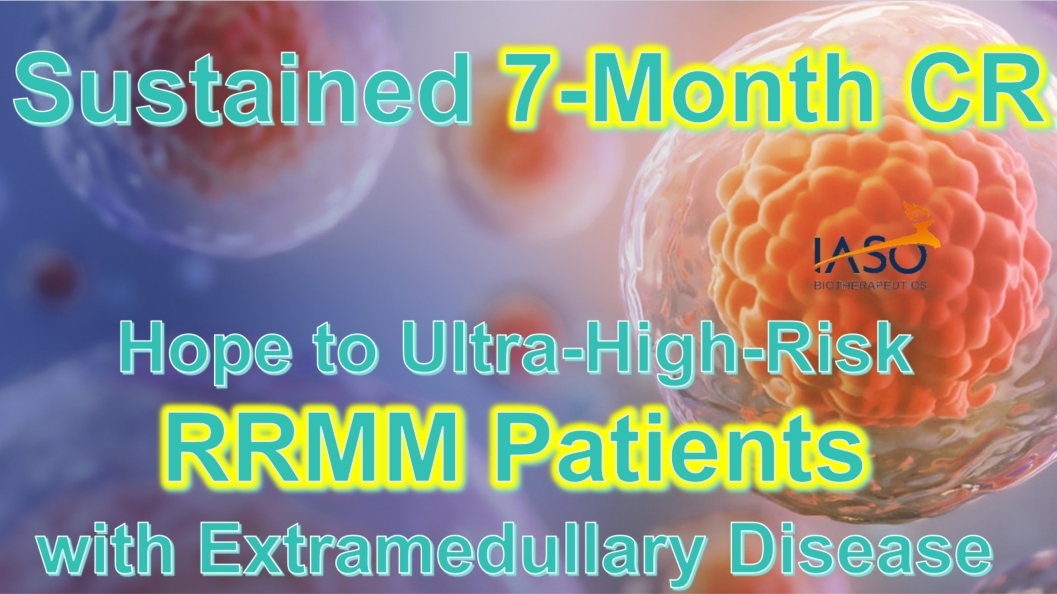
Sustained 7-Month CR, Liver Extramedullary Disease Disappearance: Equecabtagene Autoleucel Brings High-Quality Survival Hope to Ultra-High-Risk RRMM Patients with Extramedullary Disease
### Sustained 7-Month CR, Liver Extramedullary Disease Disappearance: Equecabtagene Autoleucel Brings High-Quality Survival Hope to Ultra-High-Risk RRMM Patients with Extramedullary Disease

RRMM Patients
In December 2019, a man in his 50s was diagnosed with multiple myeloma (MM) at a hospital in Shenzhen, China. The patient had high-risk cytogenetic abnormalities (17p deletion) and underwent various treatments over more than three years, including proteasome inhibitors (PIs), immunomodulatory drugs (IMiDs), and CD38 monoclonal antibodies. Despite these treatments, the patient experienced a second relapse. This relapse was characterized by a P53 gene mutation and liver extramedullary invasion, classifying it as an ultra-high-risk situation. Although the patient initially refused an autologous stem cell transplant (ASCT), he was eventually persuaded to collect sufficient stem cells. However, due to concerns about the side effects of high-dose chemotherapy, he opted for CAR-T therapy.
### Personalized Treatment: From ASCT to CAR-T Therapy
Under the care of Professor Chen’s team at the hospital, the patient was evaluated for CAR-T therapy. Despite the risks, he underwent the treatment and showed significant improvement. As of March 2024, he has maintained a complete response (CR) for seven months, with PET/CT scans indicating the disappearance of liver extramedullary disease.
#### Patient Background
– **Age**: 54
– **Initial Symptoms**: Back pain after exercise
– **Diagnosis**: Multiple Myeloma (IgA κ type, DS I A stage, ISS I stage, R-ISS II stage, mSMART high-risk)
### Treatment Journey
– **2019**: Diagnosed with MM; high-risk cytogenetic abnormality (17p deletion)
– **2020-2022**: Treated with PIs, IMiDs, and CD38 monoclonal antibodies
– **Early 2023**: Second relapse with P53 mutation and liver extramedullary disease
– **July 2023**: Stem cell collection for ASCT
– **August 2023**: Initiated CAR-T cell (Equecabtagene Autoleucel) therapy
– **September 2023**: Discharged with strict complete response (sCR)
– **March 2024**: PET/CT scan confirms sustained complete response (CR) with no liver lesions
### Breakthrough Results and Future Prospects
CAR-T therapy has emerged as a promising treatment for relapsed and refractory multiple myeloma (RRMM), especially for patients resistant to conventional therapies. This case highlights the importance of personalized treatment plans, considering disease factors, previous treatment outcomes, and patient preferences. Equecabtagene Autoleucel (IKEA-Lunsay) CAR-T therapy has given this high-risk patient a new lease on life and holds the potential to offer hope to many more MM patients in China.
By showcasing such success stories, we aim to raise awareness about the advancements in CAR-T therapy and its significant impact on improving the quality of life for MM patients. This breakthrough not only marks a significant achievement for the hospital but also signals a new era of hope for countless MM patients.
🎉🎉To assess whether the condition is suitable for CAR-T or clinic therapy, you can submit Advanced Medicine in China for preliminary evaluation!
WhatsApp: +8613717959070
Email: doctor.huang@globecancer.com
#MedicalBreakthrough #CARTTherapy #MultipleMyeloma #CancerTreatment #PatientSuccess #HealthcareInnovation #CancerResearch #MMTreatment #LifeSavingTherapies #MedicalAdvancements #HealthcareHeroes #InnovativeMedicine #CancerCare #HopeForMM #CancerAwareness
Warning: Trying to access array offset on value of type bool in /www/wwwroot/www.medtourcn.com/wp-content/themes/medical-directory/framework/theme/medicaldirectory-image.php on line 78
Warning: Trying to access array offset on value of type bool in /www/wwwroot/www.medtourcn.com/wp-content/themes/medical-directory/framework/theme/medicaldirectory-image.php on line 79
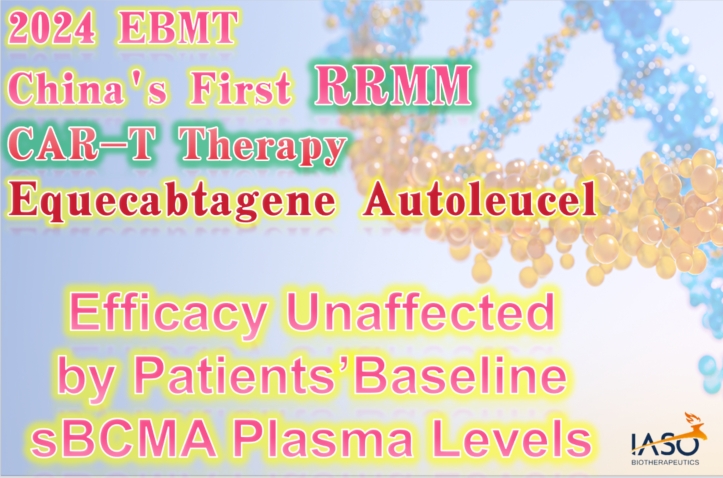
2024 EBMT : China’s First RRMM CAR-T Therapy Equecabtagene Autoleucel: Efficacy Unaffected by Patients’ Baseline sBCMA Plasma Levels
2024 EBMT : China’s First RRMM CAR-T Therapy Equecabtagene Autoleucel: Efficacy Unaffected by Patients’ Baseline sBCMA Plasma Levels

RRMM
In recent years, CAR-T cell therapy targeting BCMA has emerged as a groundbreaking treatment for multiple myeloma, offering new hope to patients. At the 50th European Society for Blood and Marrow Transplantation (EBMT) Annual Meeting, held from April 14-17, 2024, in Glasgow, the team led by Professor Qiu Lugui presented the latest subgroup analysis results from the FUMANBA-1 study (Abstract OS10-04) on China’s first BCMA-targeted CAR-T therapy, Iquilencel (CT103A).
BCMA (B-cell maturation antigen) is a promising therapeutic target for multiple myeloma (MM), with soluble BCMA (sBCMA) levels in the blood reflecting tumor burden. High sBCMA levels can interfere with the effectiveness of BCMA-targeted therapies, including CAR-T, by competing with cell-surface BCMA for binding, which can lead to reduced efficacy. In contrast, Iquilencel has been designed to minimize the impact of sBCMA on treatment outcomes through careful selection of its single-chain variable fragment (scFv).
The FUMANBA-1 phase II study (NCT05066646) in Chinese patients with relapsed/refractory multiple myeloma (RRMM) has demonstrated that Iquilencel can induce deep and durable responses, with a complete response (CR) rate of 82.4% and a 12-month progression-free survival (PFS) rate of 85.5%. This study aimed to explore whether baseline serum sBCMA levels affect clinical outcomes following Iquilencel infusion.
### Study Methods and Results
The study used enzyme-linked immunosorbent assay (ELISA) to measure serum sBCMA levels and digital droplet PCR (ddPCR) to monitor CAR transgene copy numbers in patients’ peripheral blood. Baseline serum sBCMA levels were classified into high (≥225.1 ng/mL) and low (<225.1 ng/mL) groups. Results showed that high sBCMA levels were significantly associated with high tumor burden, advanced R-ISS and DS stages, and high BCMA expression. However, there were no significant differences in CAR-T cell expansion, AUC (Area Under the Curve) during the first 28 days, or cell persistence between the high and low sBCMA groups.
Patients with high baseline sBCMA levels had overall response rates (ORR) and ≥CR rates of 100% and 80%, respectively, compared to 97.8% and 84% in the low sBCMA group. Analysis showed no significant correlation between baseline characteristics (including sBCMA levels) and CR/sCR achievement. Additionally, there were no significant differences in minimal residual disease (MRD) negativity rates, 18-month sustained MRD negativity rates, PFS, and overall survival (OS) between the two groups.
### Conclusion
The findings from the FUMANBA-1 study indicate that Iquilencel’s efficacy is not influenced by baseline sBCMA levels, making it a universally applicable and promising treatment option for RRMM patients. Its unique fast-dissociation and low-exhaustion properties, similar to those of healthy T-cell receptors, enable Iquilencel to remain effective and persistent in patients’ bodies regardless of sBCMA levels.
Professor Qiu Lugui from the Institute of Hematology & Blood Diseases Hospital, Chinese Academy of Medical Sciences, and Professor Li Chunrui from Tongji Hospital, Huazhong University of Science and Technology, noted, “sBCMA is an important biomarker of tumor burden in multiple myeloma and a key factor influencing prognosis. Accumulation of sBCMA can inhibit the function of BCMA CAR-T cells. However, our study shows that Iquilencel can overcome the challenges posed by high baseline sBCMA levels, providing significant and lasting responses for RRMM patients.”
These results underscore Iquilencel as an ideal treatment choice for RRMM, offering hope for more effective and long-lasting therapeutic outcomes.
🎉🎉To assess whether the condition is suitable for CAR-T or clinic therapy, you can submit Advanced Medicine in China for preliminary evaluation!
WhatsApp: +8613717959070
Email: doctor.huang@globecancer.com
#EBMT2024 #CAR_T #MultipleMyeloma #Iquilencel #EquecabtageneAutoleucel #sBCMA #CancerResearch #Immunotherapy #MedicalBreakthrough #Biopharmaceuticals
Warning: Trying to access array offset on value of type bool in /www/wwwroot/www.medtourcn.com/wp-content/themes/medical-directory/framework/theme/medicaldirectory-image.php on line 78
Warning: Trying to access array offset on value of type bool in /www/wwwroot/www.medtourcn.com/wp-content/themes/medical-directory/framework/theme/medicaldirectory-image.php on line 79
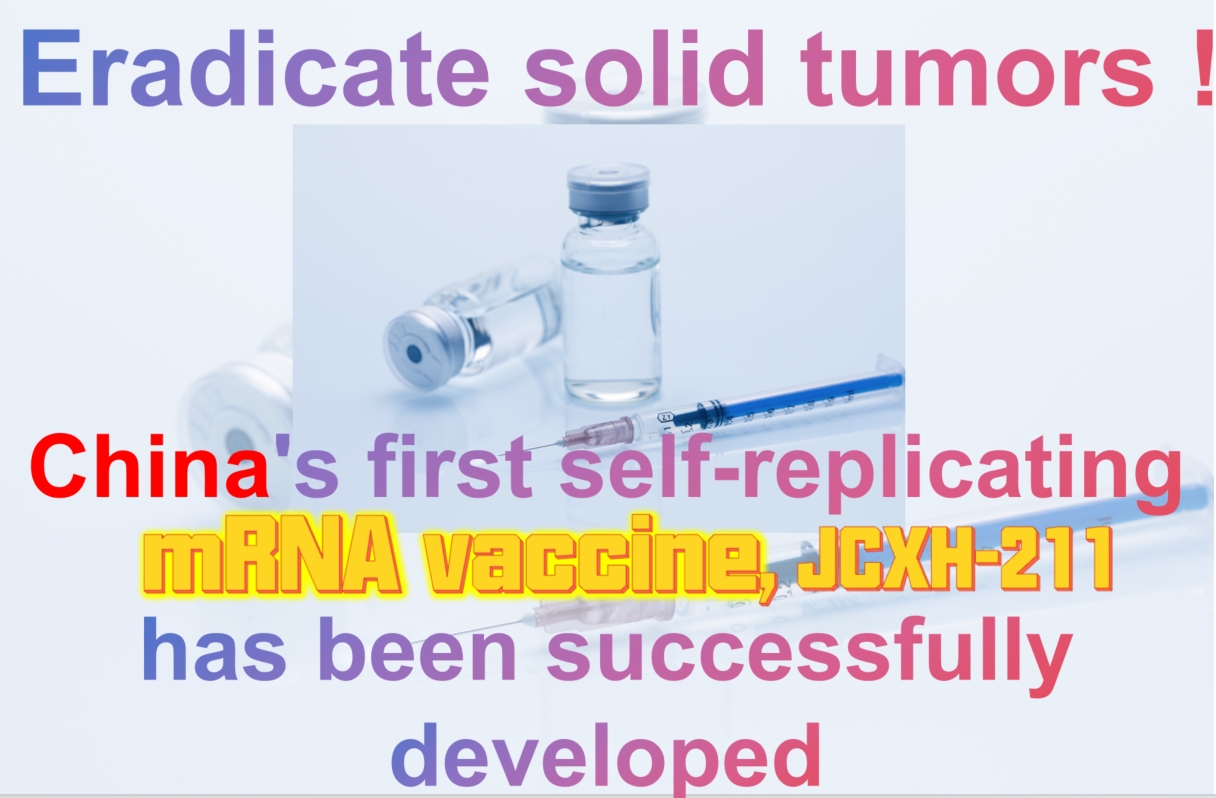
Hope to Eradicate Lung Cancer, Colorectal Cancer, and Various Solid Tumors! China’s First Self-Replicating mRNA Vaccine JCXH-211 Successfully Launched~
Hope to Eradicate Lung Cancer, Colorectal Cancer, and Various Solid Tumors! China’s First Self-Replicating mRNA Vaccine JCXH-211 Successfully Launched~

mRNA Vaccine
Tumor immunotherapy, as an emerging method for diagnosing and treating tumors, has garnered widespread attention since its inception. Prior to the advent of tumor immunotherapy, the clinical treatment of solid tumors relied solely on traditional surgical removal, radiotherapy, and chemotherapy. Although these methods were effective, they came with significant drawbacks such as drug side effects and the risk of recurrence.
Since the 1990s, mRNA vaccines have been considered therapeutic vaccines. During the COVID-19 pandemic in 2020, mRNA vaccines were used in clinical treatments, saving countless lives. Today, as the advantages of mRNA vaccines are gradually being discovered, they are now applied in multiple fields.
The advent of China’s first self-replicating mRNA vaccine JCXH-211 undoubtedly marks a new breakthrough in the clinical diagnosis and treatment of various solid tumors in China.
**What is the mRNA Vaccine JCXH-211?**
JCXH-211 is the world’s first self-replicating RNA drug encoding human interleukin-12 (IL-12) to enter clinical trials. This srRNA vaccine delivers mRNA encoding IL-12 into the cytoplasm, continuously expressing IL-12 to enhance the body’s immune response against tumor cells.
In preclinical studies involving various mouse and PDX disease models, JCXH-211 has shown the ability to effectively kill tumor cells, eliminate distant tumors, and prevent tumor recurrence. Comprehensive GLP toxicology studies have also demonstrated good safety.
JCXH-211 has a broad range of indications and is expected to effectively treat multiple solid tumors. The anticipated prospects are as follows:
**1. Lung Cancer:**
As one of the leading causes of cancer death worldwide, lung cancer is often diagnosed at a late stage due to difficulties in early detection. JCXH-211, through continuous expression of IL-12 and activation of immune cells, is expected to effectively control the growth and spread of lung cancer cells.
**2. Colorectal Cancer:**
Current clinical treatments for colorectal cancer primarily involve surgery and radiotherapy/chemotherapy, which can remove visible tumors but have a high recurrence rate. Periodic administration of JCXH-211 may significantly reduce recurrence and improve patient survival.
**3. Soft Tissue/Chondrosarcoma:**
These tumors are highly invasive and cover a wide range of areas, often affecting surrounding soft tissues and progressing rapidly. Current treatments are limited to surgery and radiotherapy/chemotherapy, which, although somewhat effective, are not thorough, leading to high recurrence rates. JCXH-211 could become a new treatment method, enhancing the body’s immune response to combat these stubborn cancer cells.
**4. Skin Cancer:**
Clinical treatments for skin cancer mainly include surgery and radiotherapy. While most skin cancers have a good prognosis, the effects on intractable melanoma are poor. The expression of IL-12 can activate specific T cells, greatly aiding in the elimination of melanoma cells.
**High-Efficiency Activation and Safety of the mRNA Vaccine JCXH-211!**
mRNA vaccines not only encode antigens to induce specific immune responses against tumors but also possess inherent immunostimulatory properties. This dual mechanism allows JCXH-211 to activate the immune system more efficiently, enhancing the overall anti-tumor effect.
Moreover, the safety of mRNA vaccines is well-recognized. Since DNA is the genetic material of most species, including humans and viruses, and is transcribed into mRNA before being translated into proteins to perform functions in the body, injecting mRNA into the human body does not enter the cell nucleus, thereby eliminating the risk of genomic insertion mutations. Additionally, mRNA can be naturally degraded and excreted from the body, preventing accumulation. Thus, JCXH-211 presents lower potential risks and is safer.
Currently, clinical trials are progressing steadily. With the rapid advancement of tumor immunotherapy, JCXH-211 is expected to become a standard treatment for various solid tumors, offering hope to many cancer patients.

 To assess whether the condition is suitable for cancer vaccine or clinic therapy, you can submit Advanced Medicine in China for preliminary evaluation!
To assess whether the condition is suitable for cancer vaccine or clinic therapy, you can submit Advanced Medicine in China for preliminary evaluation!
WhatsApp: +8613717959070
Email: doctor.huang@globecancer.com
#LungCancer #ColorectalCancer #SolidTumors #mRNAVaccine #JCXH211 #CancerTreatment #TumorImmunotherapy #MedicalBreakthrough #Biopharma #CancerResearch #HealthcareInnovation #CancerHope #MedicalScience #HealthTech #ClinicalTrials #CancerSurvivor #CancerAwareness #InnovativeMedicine #CancerVaccine #Vaccine #mRNA #JCXH
Warning: Trying to access array offset on value of type bool in /www/wwwroot/www.medtourcn.com/wp-content/themes/medical-directory/framework/theme/medicaldirectory-image.php on line 78
Warning: Trying to access array offset on value of type bool in /www/wwwroot/www.medtourcn.com/wp-content/themes/medical-directory/framework/theme/medicaldirectory-image.php on line 79
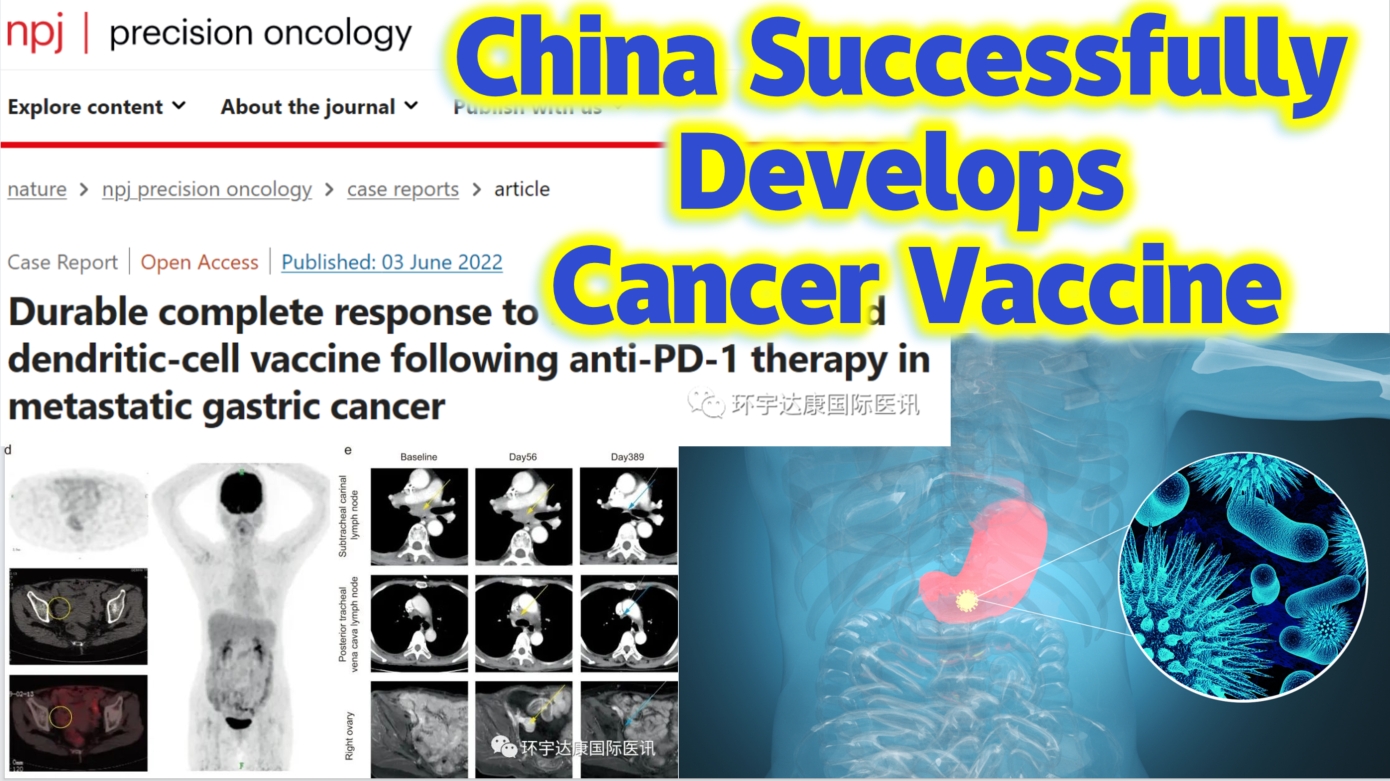
Tumors Vanish After One Year of Treatment! The First Advanced Gastric Cancer Patient to Receive the New Cancer Vaccine Achieves Lasting Remission
**Tumors Vanish After One Year of Treatment! The First Advanced #GastricCancer Patient to Receive the New #Cancer Vaccine Achieves Lasting Remission**

Cancer Vaccine
Mrs. Liu, who was battling advanced gastric cancer, never imagined that one year ago, she was on the brink of death due to chemotherapy, with her disease progressing rapidly and cancer spreading throughout her body… Later, she won the “lottery” of her life. She received one of the world’s most advanced immunotherapies—cancer vaccines—in Fujian. One year later, all her cancer lesions have completely disappeared! Her successful case was even published in a prominent international journal, a Nature sub-journal, causing a huge sensation.
**First Advanced Gastric Cancer Patient to Receive the New Cancer Vaccine Achieves Lasting Remission! Tumors Vanish After One Year of Treatment**
In July 2017, 66-year-old Mrs. Liu was unfortunately diagnosed with stage IV gastric cancer. After surgery, she underwent FOLFOX chemotherapy to eliminate residual cancer cells, and everything seemed to be going well. Unfortunately, just eight months later, Mrs. Liu’s cancer recurred, and multiple lesions were found not only in her stomach but also in her peritoneum and lymph nodes, indicating that the cancer had rapidly spread throughout her body. Mrs. Liu had to undergo chemotherapy again. However, this time, her body could no longer withstand the side effects. After two cycles of Nab-paclitaxel, she was on the brink of death due to severe side effects and had to stop chemotherapy.
When she and her family were in despair, the doctors brought them good news. A nationally renowned cancer center was conducting a clinical trial of a cancer vaccine. Remarkably, this new type of cancer vaccine was a hot topic of research worldwide and had achieved significant breakthroughs.
The new cancer vaccine is a personalized, neoantigen-loaded monocyte-derived dendritic cell vaccine, known as Neo-MoDC. This vaccine fully mobilizes the immune system: dendritic cells (DCs) recognize cancer antigens, present antigens to activate T cells, promote T cell enrichment, and mobilize T cells to eliminate cancer cells, ultimately launching a series of precise and powerful attacks on cancer cells throughout the body.
Mrs. Liu decided to participate in the clinical trial of this new therapy.
This new therapy is actually much more complex than described above. Doctors first performed whole-exome sequencing on her tumor tissue samples, identifying 1,096 somatic non-synonymous mutations. They then determined her HLA (human leukocyte antigen) types as HLA-A02:07, HLA-A24:02, HLA-B40:01, HLA-B46:01, HLA-C01:02, and HLA-C03:04. Based on the binding affinity of these predicted mutant peptides with the patient’s HLA I class alleles, eight soluble mutant epitopes with the highest affinity were identified to prepare a personalized neoantigen dendritic cell cancer vaccine specifically targeting her cancer cells.
Mrs. Liu successfully received two months of subcutaneous Neo-MoDC vaccine injections to activate the T cell anti-tumor immune response. Researchers confirmed that the Neo-MoDC vaccine successfully induced a neoantigen-specific T cell response. For better therapeutic results, from day 65, Mrs. Liu received nivolumab (PD-1) treatment every 14 days.
An unexpected surprise occurred.
Five days later, Mrs. Liu’s CA-125 level rapidly dropped from 596 to 64 U/ml;
Two weeks later, malignant ascites disappeared, and clinical imaging showed a 30% reduction in the volume of metastatic supraclavicular lymph nodes;
Two months later, all metastatic lymph nodes reduced to less than 1 cm, and evaluations showed complete remission (CR) in the lymph nodes, with a 20% reduction in the longest diameter of ovarian metastatic lesions.
On the 231st day after the initial vaccination, imaging showed complete regression of all lesions;
On the 389th day of combined treatment, a CT scan showed that the ovarian metastatic lesions had also completely disappeared;
Subsequent CT scans confirmed that by the time of the paper’s publication (October 2021), complete regression had lasted for over 25 months.
This result indicates that the neoantigen vaccine Neo-MoDC and PD-1 in combination therapy may enhance each other’s efficacy, achieving better treatment outcomes, and providing a new immunotherapy combination for metastatic gastric cancer and other tumor types.
Mrs. Liu said that after the failure of chemotherapy, she was in despair, counting down the days of her life. She couldn’t imagine that she would have the opportunity to receive such cutting-edge therapy in China, let alone believe that she would become the fortunate one in this milestone research, successfully defeating cancer and returning to normal life!
In June 2022, this study was published in a prominent international journal, a Nature sub-journal, marking the first known case of complete and lasting tumor regression in gastric cancer through neoantigen-based DC vaccine and PD-1 therapy, which is of milestone significance!
**Cancer Vaccines Will Ultimately Become a Sword Against Cancer!**
Throughout the long history of humanity, various vaccines have been developed to combat devastating diseases, leading to the eradication of deadly diseases like smallpox and poliomyelitis. Similarly, the medical community is actively developing various vaccines to fight cancer, hoping to awaken our immune system to recognize and kill cancer cells upon injection, and to generate immune memory responses that protect us continuously, attacking any emerging cancer cells before they form tumors. This vision will eventually become a reality!
Immunotherapy is hailed as the hope for conquering cancer. Whether it’s the currently approved PD-1 immune checkpoint inhibitor therapy for various cancers, adoptive cell immunotherapy represented by CAR-T, or numerous cancer vaccines under development, they represent just the tip of the iceberg in immunology. Researchers are uncovering more information from this iceberg, learning how to control immune responses, and using these therapeutic approaches in clinical practice to benefit patients, giving us increasing hope for survival. The hope for conquering cancer may lie within these advances. We look forward to more breakthroughs in immunotherapy, bringing more miracles to cancer patients.

 To assess whether the condition is suitable for New Cancer Vaccine or clinic therapy, you can submit Advanced Medicine in China for preliminary evaluation!
To assess whether the condition is suitable for New Cancer Vaccine or clinic therapy, you can submit Advanced Medicine in China for preliminary evaluation!
WhatsApp: 137 1795 9070
Email: doctor.huang@globecancer.com
#CancerVaccine #StomachCancer #Immunotherapy #CancerResearch #MedicalBreakthrough #CancerTreatment #HealthcareInnovation #PatientSuccess #Oncology #MedicalAdvancements
Warning: Trying to access array offset on value of type bool in /www/wwwroot/www.medtourcn.com/wp-content/themes/medical-directory/framework/theme/medicaldirectory-image.php on line 78
Warning: Trying to access array offset on value of type bool in /www/wwwroot/www.medtourcn.com/wp-content/themes/medical-directory/framework/theme/medicaldirectory-image.php on line 79

Breakthrough in mRNA Cancer Vaccine! Chinese Medical Team Brings New Hope to Advanced Cancer Patients Resistant to Traditional Treatments
Breakthrough in mRNA Cancer Vaccine! Chinese Medical Team Brings New Hope to Advanced Cancer Patients Resistant to Traditional Treatments

Cancer Vaccine
The rise of mRNA vaccines during the COVID-19 pandemic has inspired their use in cancer treatment. Recently, Professor Shen Baiyong’s team at Ruijin Hospital published a groundbreaking study in *Cell Research*. They reported the first therapeutic effects of an mRNA cancer vaccine targeting the KRAS G12V mutation in solid tumors globally, offering new hope to advanced cancer patients resistant to traditional treatments.
#### Research Highlights
Two patients with the KRAS G12V mutation and HLA-A*11:01 positivity were treated with the KRAS G12V mRNA vaccine and PD-1 inhibitors.
– **First Case**: An 86-year-old woman with pancreatic cancer showed significant lesion reduction and improved quality of life after treatment.
– **Second Case**: A 69-year-old man with advanced lung cancer experienced partial tumor regression and no notable side effects after treatment.
#### Significance
This study highlights the efficacy of mRNA cancer vaccines in treating advanced solid tumors. The KRAS G12V mutation has strong binding affinity with HLA-A11:01, common in Asians, suggesting many could benefit from this therapy.
Professor Shen, who leads the Pancreatic Disease Treatment Center at Ruijin Hospital, focuses on comprehensive pancreatic cancer care and has initiated clinical trials on mRNA vaccines for advanced patients.
#### Clinical Trials
Ruijin Hospital is conducting trials on fixed single-target, multi-target personalized, and postoperative preventive mRNA vaccines, promising new hope for patients. For more information, please contact us.
This innovative research could bring new treatment options to more patients worldwide.
🎉🎉To assess whether the condition is suitable for CAR-T or clinic therapy, you can submit Advanced Medicine in China for preliminary evaluation!
WhatsApp: +8613717959070
Email: doctor.huang@globecancer.com
#CancerResearch #mRNAVaccine #MedicalBreakthrough #AdvancedCancer #InnovativeTreatment #Healthcare #Oncology #ChineseMedicalTeam #NewHope #CancerTreatment #CellResearch
Warning: Trying to access array offset on value of type bool in /www/wwwroot/www.medtourcn.com/wp-content/themes/medical-directory/framework/theme/medicaldirectory-image.php on line 78
Warning: Trying to access array offset on value of type bool in /www/wwwroot/www.medtourcn.com/wp-content/themes/medical-directory/framework/theme/medicaldirectory-image.php on line 79

**2024 ASCO: National Institute’s New CAR-T Therapy CD7 CAR-T Cells, Multiple Blood Cancer Destroyers**
**2024 ASCO: National Institute’s New CAR-T Therapy CD7 CAR-T Cells, Multiple Blood Cancer Destroyers**

CAR-T Therapy
**2024 ASCO: Four Chinese-developed CAR-T therapies make a significant impact, targeting colorectal cancer, pancreatic cancer, and hematological tumors, with an overall response rate nearing 100.0%**
**CD7 CAR-T Cells: A Powerful Strike Against Hematological Tumors, Patients Achieve Complete Remission**
Patients with relapsed or refractory hematologic malignancies have limited treatment options and poor prognosis, with a 5-year overall survival rate of less than 20%. While allogeneic hematopoietic stem cell transplantation (HSCT) provides a critical strategy for treating aggressive hematologic cancers, HSCT treatment can also result in adverse reactions such as graft-versus-host disease (GVHD) and conditioning-related toxicities. Additionally, some patients with poor health cannot undergo this treatment. Therefore, new treatment methods are urgently needed, and the emergence of CAR-T therapy has brought new hope to patients with hematologic tumors.
The world-renowned journal, *The New England Journal of Medicine*, reported on a clinical study of “CD7 CAR-T cells for the treatment of relapsed or refractory CD7-positive hematologic tumors” (NCT04599556).
From November 2021 to September 2023, 10 patients with relapsed or refractory CD7-positive cancers were enrolled in the study, including 7 cases of acute myeloid leukemia (AML), 2 cases of T-cell acute lymphoblastic leukemia (ALL), and 1 case of T-cell lymphoblastic lymphoma (IVA stage). The median age was 56.5 years (range, 13.7–72.5 years). All patients had bone marrow involvement, with a median blast cell percentage of 36.0% (range, 2–87), and a median CD7 expression on blast cells of 93.0% (range, 80.7–97.7). All patients had received extensive prior treatments, with a median of 9.5 courses (range, 4–15 courses). After enrollment, patients first received an intensive lymphocyte-depleting regimen (cyclophosphamide, fludarabine, etoposide) and then CD7 CAR-T cell infusion therapy. After a median follow-up of 15.1 months, the results showed:
-
**Complete Remission (CR):** All patients (n=10) achieved complete remission (CR) after CAR-T cell therapy, though hematologic recovery was incomplete, with grade 4 pancytopenia. As of November 8, 2023 (data cutoff date), 6 patients had not received any further treatment and remained in minimal residual disease (MRD) negative complete remission.
-
**Overall Survival Rate:** The estimated 1-year overall survival rate was 68% [95% Confidence Interval (CI), 43–100].
-
**Disease-Free Survival Rate:** The estimated 1-year disease-free survival rate was 54% (95% CI, 29–100).
🎉🎉To assess whether the condition is suitable for CAR-T or clinic therapy, you can submit Advanced Medicine in China for preliminary evaluation!
WhatsApp: +8613717959070
Email: doctor.huang@globecancer.com
#ASCO2024 #CARTherapy #BloodCancer #CD7CART #CancerResearch #Hematology #MedicalInnovation #CART
Warning: Trying to access array offset on value of type bool in /www/wwwroot/www.medtourcn.com/wp-content/themes/medical-directory/framework/theme/medicaldirectory-image.php on line 78
Warning: Trying to access array offset on value of type bool in /www/wwwroot/www.medtourcn.com/wp-content/themes/medical-directory/framework/theme/medicaldirectory-image.php on line 79
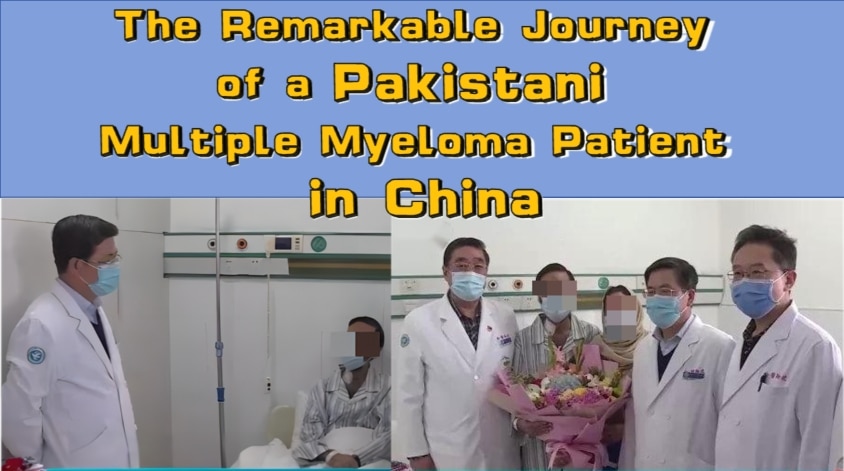
Hope Rekindled: The Remarkable Journey of a Pakistani Multiple Myeloma Patient in China
 Hope Rekindled: The Remarkable Journey of a Pakistani Multiple Myeloma Patient in China
Hope Rekindled: The Remarkable Journey of a Pakistani Multiple Myeloma Patient in China

Hope of patient
 “When I first arrived, I couldn’t walk and had a lot of pain in my chest and back. Now, I don’t have these symptoms anymore, and I can walk for more than ten minutes every day.”
“When I first arrived, I couldn’t walk and had a lot of pain in my chest and back. Now, I don’t have these symptoms anymore, and I can walk for more than ten minutes every day.”
 Meet Julian, a patient from Pakistan who faced the daunting challenge of a relapse in his battle against Multiple Myeloma. Despite undergoing various treatments, relief seemed elusive.
Meet Julian, a patient from Pakistan who faced the daunting challenge of a relapse in his battle against Multiple Myeloma. Despite undergoing various treatments, relief seemed elusive.
 Julian’s wife stumbled upon groundbreaking research published by Xuzhou Medical University, highlighting innovative cell therapy for Multiple Myeloma developed by the Tumor Biotherapy Research Institute and affiliated hospitals.
Julian’s wife stumbled upon groundbreaking research published by Xuzhou Medical University, highlighting innovative cell therapy for Multiple Myeloma developed by the Tumor Biotherapy Research Institute and affiliated hospitals.
 Seeking further treatment, Julian and his wife embarked on a journey to Xuzhou Medical University Affiliated Hospital. Upon arrival, thorough examinations were conducted to assess his condition and formulate a tailored treatment plan.
Seeking further treatment, Julian and his wife embarked on a journey to Xuzhou Medical University Affiliated Hospital. Upon arrival, thorough examinations were conducted to assess his condition and formulate a tailored treatment plan.
 Julian underwent T-cell collection at the Hematology Department’s Cell Collection Room, with the harvested cells processed into CAR-T cells by Xuzhou Medical University’s Cancer Research Institute. Two weeks later, he received an infusion of immune cells (CD19CAR-T cells, BCMACAR-T cells).
Julian underwent T-cell collection at the Hematology Department’s Cell Collection Room, with the harvested cells processed into CAR-T cells by Xuzhou Medical University’s Cancer Research Institute. Two weeks later, he received an infusion of immune cells (CD19CAR-T cells, BCMACAR-T cells).
 A month later, bone marrow cytology revealed complete remission of the primary disease. His attending physician continued medical observations, confirming positive treatment outcomes through comprehensive examinations.
A month later, bone marrow cytology revealed complete remission of the primary disease. His attending physician continued medical observations, confirming positive treatment outcomes through comprehensive examinations.
 “Previously, I couldn’t sit like this, and walking was very difficult. It was also very uncomfortable to lie down.”
“Previously, I couldn’t sit like this, and walking was very difficult. It was also very uncomfortable to lie down.”
”After receiving CAR-T treatment, you can see that I can now sit normally, walk normally, and my mobility is gradually increasing.
My improvement is very significant.”
 From treatment initiation to Julian’s discharge and return home, the entire process took just one and a half months.
From treatment initiation to Julian’s discharge and return home, the entire process took just one and a half months.
 Julian’s journey stands as a beacon of hope, showcasing the transformative potential of innovative medical interventions in the fight against Multiple Myeloma.
Julian’s journey stands as a beacon of hope, showcasing the transformative potential of innovative medical interventions in the fight against Multiple Myeloma.

 To assess whether the condition is suitable for CAR-T or clinic therapy, you can submit Advanced Medicine in China for preliminary evaluation!
To assess whether the condition is suitable for CAR-T or clinic therapy, you can submit Advanced Medicine in China for preliminary evaluation!
WhatsApp: +8613717959070
Email: doctor.huang@globecancer.com
Warning: Trying to access array offset on value of type bool in /www/wwwroot/www.medtourcn.com/wp-content/themes/medical-directory/framework/theme/medicaldirectory-image.php on line 78
Warning: Trying to access array offset on value of type bool in /www/wwwroot/www.medtourcn.com/wp-content/themes/medical-directory/framework/theme/medicaldirectory-image.php on line 79

2024 AACR | China’s Innovative Medicine Leads Globally! Dazzling International with Multi-Cancer Research Achievements

 2024 AACR | China’s Innovative Medicine Leads Globally! Dazzling International with Multi-Cancer Research Achievements
2024 AACR | China’s Innovative Medicine Leads Globally! Dazzling International with Multi-Cancer Research Achievements

AACR2024
#AACR
 This month, the annual cancer research summit, #AACR, arrived in San Diego, USA! Focused on #tumor research and innovation, top global achievements were fully showcased. Under China’s Biopharmaceuticals, the new drug, Anlotinib from Zhongda Tianqing, shines brightly!
This month, the annual cancer research summit, #AACR, arrived in San Diego, USA! Focused on #tumor research and innovation, top global achievements were fully showcased. Under China’s Biopharmaceuticals, the new drug, Anlotinib from Zhongda Tianqing, shines brightly!
 Latest Research Progress
Latest Research Progress
ALTER-G-001, a diversified and cross-regional Phase II study, unveiled the latest results of Cohort C. Patients receiving Anlotinib + standard chemotherapy for 6 cycles showed remarkable efficacy. Anlotinib combined with chemotherapy, especially demonstrated significant effects in pancreatic cancer patients!
 Key Data
Key Data
Enrolled 41 patients, covering various cancer types including pancreatic, #gastric, #biliarytract, and #duodenal cancer,
ORR reached 42.3% in #pancreaticcancer patients
DCR soared to 88.5%
Median PFS reached 5.8 months
After efficacy assessment, tumors in 14 SD patients showed shrinkage
 Treatment Outlook
Treatment Outlook
Research results indicate that Anlotinib combined with chemotherapy as first-line treatment, particularly for digestive tract tumors with unresectable liver metastases, especially in pancreatic cancer patients, has significant efficacy. This may open up a completely new treatment path for such patients, bringing new hope!
 Embark on an exploration of life from here!
Embark on an exploration of life from here!

 To assess whether the condition is suitable for CAR-T or clinic therapy, you can submit Advanced Medicine in China for preliminary evaluation!
To assess whether the condition is suitable for CAR-T or clinic therapy, you can submit Advanced Medicine in China for preliminary evaluation!
WhatsApp: +8613717959070
Email: doctor.huang@globecancer.com
Warning: Trying to access array offset on value of type bool in /www/wwwroot/www.medtourcn.com/wp-content/themes/medical-directory/framework/theme/medicaldirectory-image.php on line 78
Warning: Trying to access array offset on value of type bool in /www/wwwroot/www.medtourcn.com/wp-content/themes/medical-directory/framework/theme/medicaldirectory-image.php on line 79

AACR 2024/Breakthrough Chinese Research – Monotherapy for Late-stage #SolidTumors and #Lymphomas
 AACR 2024/Breakthrough Chinese Research – Monotherapy for Late-stage #SolidTumors and #Lymphomas
AACR 2024/Breakthrough Chinese Research – Monotherapy for Late-stage #SolidTumors and #Lymphomas

AACR2024
#AACR2024
#TQB2916
#CD40
#ECOG
#Realcase
#Lymphomas
#Conclusion
 TQB2916 achieves CD40 engagement and immune activation through cytokine modulation. With its promising safety and efficacy profile, 200mg has been identified as the preliminary expansion dose. Studies exploring TQB2916 in combination with immune checkpoint inhibitors and/or other anti-cancer therapies are currently underway.
TQB2916 achieves CD40 engagement and immune activation through cytokine modulation. With its promising safety and efficacy profile, 200mg has been identified as the preliminary expansion dose. Studies exploring TQB2916 in combination with immune checkpoint inhibitors and/or other anti-cancer therapies are currently underway.
 Stay tuned for more updates on this groundbreaking treatment!
Stay tuned for more updates on this groundbreaking treatment!
 doctor.huang@globecancer.com
doctor.huang@globecancer.com
 WhatsApp +86137 1795 9070
WhatsApp +86137 1795 9070
The Medical Department will contact you as soon as they receive the reports.
Warning: Trying to access array offset on value of type bool in /www/wwwroot/www.medtourcn.com/wp-content/themes/medical-directory/framework/theme/medicaldirectory-image.php on line 78
Warning: Trying to access array offset on value of type bool in /www/wwwroot/www.medtourcn.com/wp-content/themes/medical-directory/framework/theme/medicaldirectory-image.php on line 79

AACR 2024/Breakthrough in Treating Recurrent or Metastatic Nasopharyngeal Carcinoma by Chinese Medical Team
 AACR 2024/Breakthrough in Treating Recurrent or Metastatic Nasopharyngeal Carcinoma by
AACR 2024/Breakthrough in Treating Recurrent or Metastatic Nasopharyngeal Carcinoma by  Chinese Medical Team
Chinese Medical Team

AACR 2024
